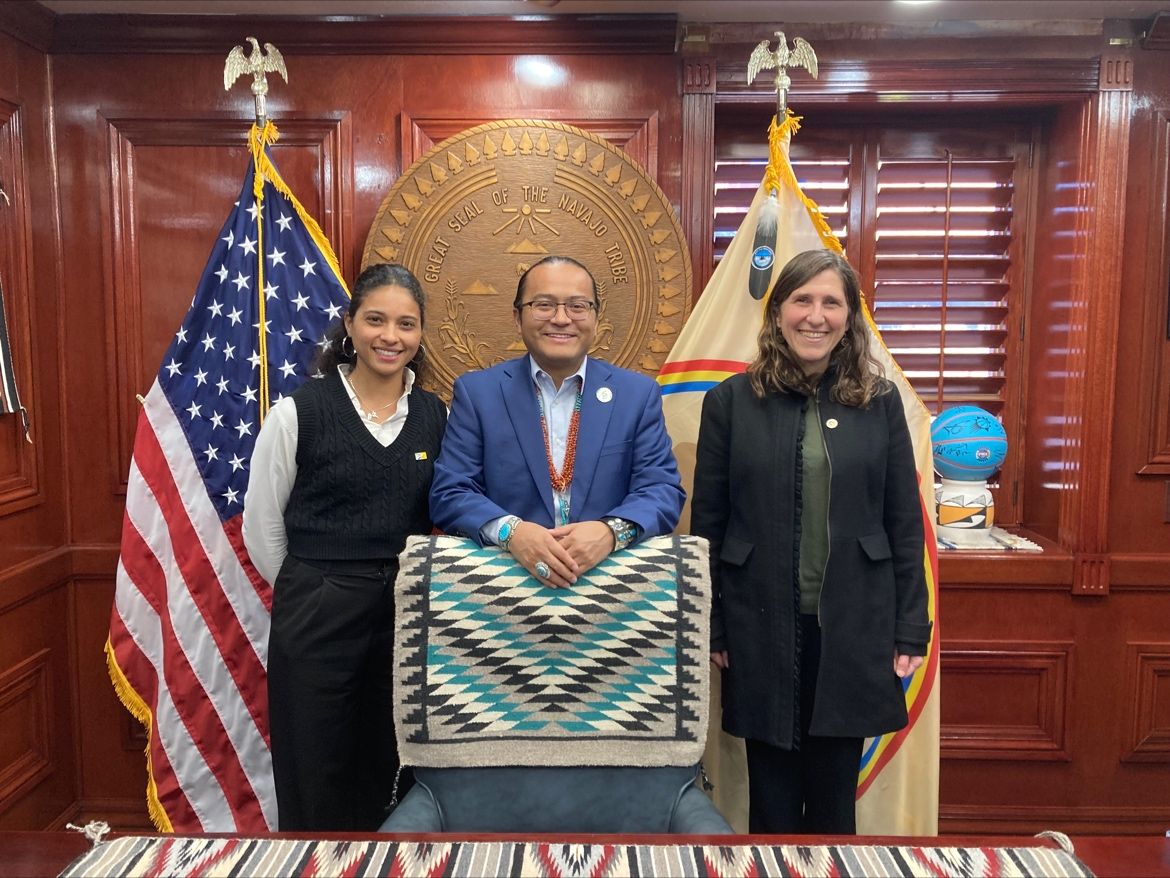United States of America: Humanising the Energy Transition in Urban and Rural Communities

Members of the US Member Committee with the President of the Navajo Nation, Buu Nygren
Understanding that a “top-down” approach is insufficient for the global shift from fossil fuels to renewable energy, the World Energy Council and its United States Member Committee have initiated a project to explore effective “bottom-up” and “middle-out” engagement strategies in implementing place-based transitions. This initiative focuses on facilitating place-based transitions that embody principles of justice, equity, diversity, and inclusion (J.E.D.I.).
By drawing on the unique experiences in both urban and rural settings, the project demonstrates the critical importance of seeking out marginalised voices—women, youth, indigenous peoples, and vulnerable groups—not merely to ensure equitable solutions, but as a crucial tactic for gathering diverse knowledge and fostering innovation to shape impactful solutions. This approach is essential for creating resilient and sustainable energy systems that are supported in local communities.
The initial project phase engaged communities from the Bronzeville neighbourhood in Chicago and the Navajo Nation in New Mexico.
By actively inviting local insights to shape future engagement strategies in these communities, participants trust the process and their active engagement achieves successful place-based energy transitions.
You may also like.



Join the World Energy Community
Engage with energy leaders around the world, build capabilities and help shape the future of energy.
Get InvolvedSite Search
Join the World Energy Community
Do you want to get involved with the world’s most dynamic energy organisation?
Our globally networked energy-plus community aims to increase social and environmental benefits, deliver ‘new’ solutions, and forge common sense to close the implementation gap and activate road building communities. Join our network of the most important, influential, and innovative leaders in energy and beyond by completing the form below.
For more information on why you should join our community, click below.
Email the
Email the
Member List
- Algeria
- Argentina
- Armenia
- Australia
- Austria
- Bahrain
- Belgium
- Bosnia and Herzegovina
- Botswana
- Brazil
- Bulgaria
- Burkina Faso
- Chile
- China
- Colombia
- Congo (Democratic Republic of)
- Croatia
- Cyprus
- Dominican Republic
- Ecuador
- Egypt (Arab Rep.)
- Estonia
- Eswatini (Kingd. of)
- Ethiopia
- Finland
- France
- Germany
- Greece
- Hong Kong
- Iceland
- India
- Indonesia
- Italy
- Japan
- Jordan
- Kazakhstan
- Kenya
- Korea (Rep. of)
- Latvia
- Lebanon
- Lithuania
- Malta
- Monaco
- Morocco
- Namibia
- Nepal
- Netherlands
- New Zealand
- Nigeria
- Norway
- Panama
- Poland
- Portugal
- Romania
- Russian Federation (Suspended)
- Saudi Arabia
- Serbia
- Singapore
- Slovenia
- South Africa
- Spain
- Sri Lanka
- Switzerland
- Thailand
- Trinidad and Tobago
- Tunisia
- Türkiye
- United Arab Emirates
- United States of America
- Uruguay
Customer Login
Please login to interact with the World Energy Transition Radar. If you don't have a customer login, please register for a customer login below.
Login with Twitter
Register for a Customer Login
Register for an account to interact with Signals.
